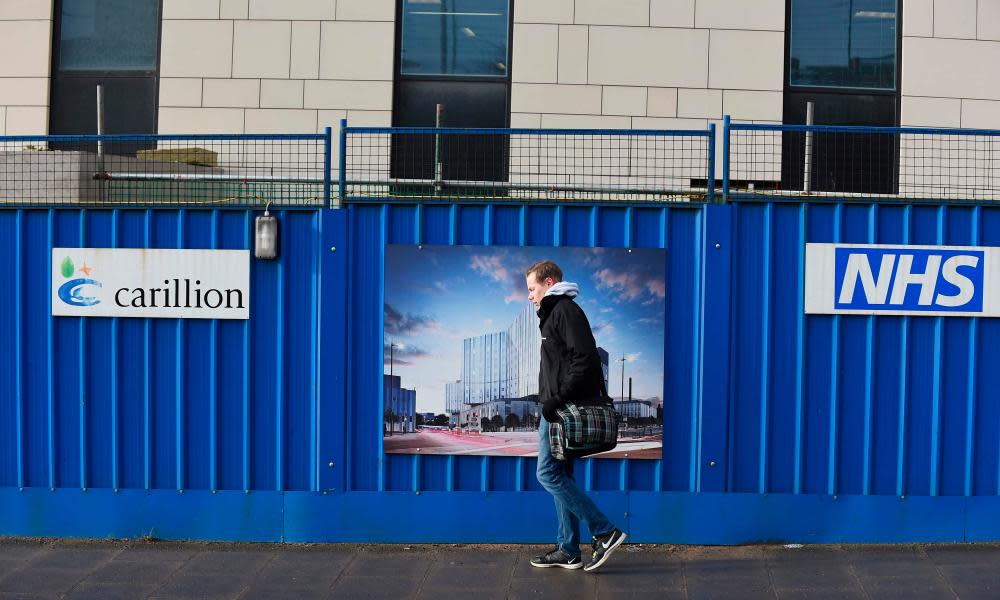After Carillion, social enterprises must take charge of public services

It will not be a shock to those working in a charity or social enterprise that Carillion is in liquidation. Nor is it a surprise that the board and senior management of this juggernaut appear to have rabidly pursued short term profit, paying themselves hefty salaries and bonuses in the process. It is no great revelation that the nation’s public services, and the often vulnerable people who depend upon them, have been put in jeopardy by the greedy feckless few. But the government is complicit in this mess and must now take responsibility for sorting it out.
Advocates in business, charity and social enterprise have argued for years that the seedy Carillion model of price-obsessed, public service outsourcing – which was near fetishised under the Coalition government – will cost us big in the long run. These outsourcing giants create “pipelines” – massive banks of contracts – put together by teams of young graduates who write bid after bid and submit them to the government, blithely disregarding the impact of their work in the real world. The result is an endless stream of government contracts, boosted by upfront money and the promise of more to come. The bottom line looks healthy and everyone gets their bonuses. But all of these contracts, amassed as they have been with little thought or care, have only the smallest chance of ever being delivered as promised.
These companies will now claim the reason Carillion has failed is because the margins are too tight; the austerity too harsh. The public and voluntary sectors know all about the impact of cuts to government spending, but these firms have created a rod for their own backs, undercutting each other just to get an order on the books. The government has sponsored this race to the bottom by focusing only on price – rather than value or quality of service. This tango between businesses and government, both indifferent to public wellbeing in the face of profit, has been a cancer at the heart of UK society for years.
Advocates in the voluntary and social enterprise sector have not sat on their hands; they have not just grumbled. They have articulated solutions. Social Enterprise UK’s 2012 report The Shadow State argued that the accounts of bidders must be open; that there must be diligence by government and reasoning behind price setting. Such diligence is surely the minimum we can expect when millions of pounds of taxpayer’s money is at stake. And in 2015, Acevo argued the problem had reached a tipping point and a new concordat was needed: a “community first” test that favours organisations that demonstrate genuine social value, rather than the faceless companies trying to deliver on the cheap.
It is time to demand these changes. Where public services go out to tender, the preferred partners for government should be social enterprises and charitable organisations, where profits are generally redeployed in the community and people come first. This may require legislation. But if the only thing that comes out of all of this mess is a review of the procurement rules, which adds more administrative work to the application process, then the government will have failed once again.
None of this should be controversial. Placing social value and social enterprise at the heart of the nation’s public services should be the moral mission of any caring government. When businesses like Carillon overreach and explode, it is not just the taxpayer’s wallet that feels the pinch. Vulnerable workers risk losing their jobs, hospitals face being uncleaned, schoolnchildren across the country risk going hungry at lunch, because the private companies that promised to deliver those services broke that promise. Charities and social enterprises must use this scandal as a platform for action. Carillion’s downfall must be the moment the country puts social value back at the heart of its public services.
Asheem Singh is author of The Moral Marketplace, co-founder of ethical city app GOtilo and former chief executive of Acevo.
Talk to us on Twitter via @Gdnvoluntary and join our community for your free monthly Guardian Voluntary Sector newsletter, with analysis and opinion sent direct to you on the first Thursday of the month.
Looking for a role in the not-for-profit sector, or need to recruit staff? Take a look at Guardian Jobs.

 Yahoo News
Yahoo News 
